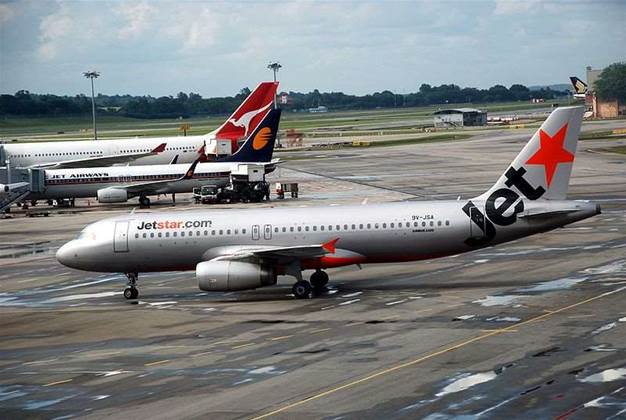Jetstar CIO Stephen Tame sees his suppliers as he sees his investment stocks - a balanced spread of risk, with some paying bigger dividends than others.

Tame revealed today that the budget airline operates with just five full-time IT staff, focused almost exclusively on managing a number of outsourcing partners including IBM (check-in/kiosk), Sonnet (desktops), Zensar (Operations app development and BPO), Telstra (telecommunications), iGate (Engineering app development) and CapGemini (Data Warehouse).
Other boutique suppliers include 4loop (ESB and Middleware), PM Partners (Project Management), Vedaleon (Airport, Airline, app development) and Sissit (SMS research and development).
In August, Tame will deliver a keynote address at the IT Financial Management conference, in which he will discuss his unique approach to managing these suppliers.
"I manage outsourcing agreements and suppliers much like I would a personal investment portfolio," he shared with iTnews this week.
"When you take a personal investment portfolio, you are concerned about the management of risk, weighed up against the best return.
"You invest money into some solid businesses with low risk, and then you also invest some into some smaller suppliers that represent greater risk, but potentially greater rewards."
Tame said Jetstar's IT team has sourced a "portfolio of services" from across its supplier base in much the same way.
The only complexity with this worldview, he said, is when one service provider relies on the services of another to deliver a certain outcome. An applications provider, for example, would require an infrastructure supplier to provide systems availability to deliver the right outcomes.
But that's an issue Tame tackles with simple delegation of responsibility.
"The structure can be self-correcting, or self-sustaining," he said.
Some of Jetstar's higher-level suppliers - those responsible for delivering business outcomes - are also tasked with looking after the suppliers they rely on - the systems or server providers, for example.
"One or two of your suppliers can help manage the rest," he said.
Again, Tame has an analogy to help break down the model.
"If I had a 100 percent in-sourced IT department, and my engineering systems manager came to me and said he couldn't deliver a report because the systems managed by the operations group or infrastructure group were down, I would not accept that as a valid excuse.
"That engineering systems manager should have managed [those lower down the chain] better.
"The fact that our IT is outsourced shouldn't change how it works."
Tame said the days of developing and maintaining your own IT applications are well and truly over, requiring less in-house resources.
"These days, services are so often packaged or available in the cloud," he said. "It isn't about how you develop or deliver services, but how you manage them.
"My five staff simply ensure services are delivered."
Don't miss Stephen Tame's keynote presentation at the IT Financial Management Conference in Sydney on August 10.



.png&h=140&w=231&c=1&s=0)

_(33).jpg&h=140&w=231&c=1&s=0)





 iTnews Executive Retreat - Security Leaders Edition
iTnews Executive Retreat - Security Leaders Edition
 iTnews Benchmark Awards 2026
iTnews Benchmark Awards 2026
 iTnews Cloud Covered Breakfast Summit
iTnews Cloud Covered Breakfast Summit
 The 2026 iAwards
The 2026 iAwards












_(1).jpg&h=140&w=231&c=1&s=0)



